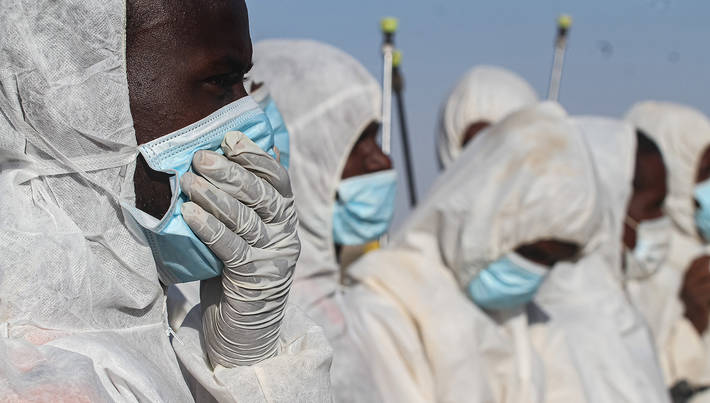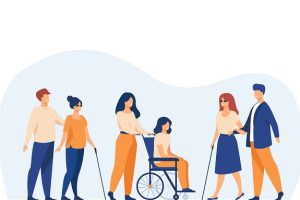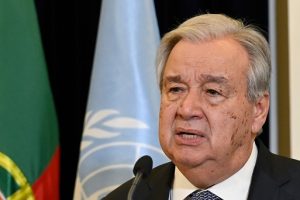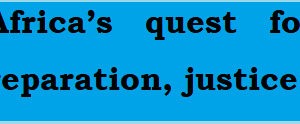
BY STAFF REPORTER
During the early days and months of COVID 19 outbreak Africa was in a better situation as compared to Europe and USA where the virus hit hard. Now that the pandemic has reached to its third wave, various authorities are expressing fear that it would have the worst hit in the continent.
World Health Organization (WHO) indicated that Africa is facing a fast-surging third wave of COVID-19 pandemic, with cases spreading more rapidly and projected to soon overtake the peak of the second wave the continent witnessed at the start of 2021.
COVID-19 cases have risen for five consecutive weeks since the onset of the third wave on 3 May 2021, according to the Guardian. As of 20 June – day 48 into the new wave – Africa had recorded around 474 000 new cases – a 21% increase compared with the first 48 days of the second wave. At the current rate of infections, the ongoing surge is set to surpass the previous one by early July.
The health system in Johannesburg, South Africa’s biggest city, is being overwhelmed by a massive wave of infections driven by the Delta variant, the winter in the southern hemisphere and a faltering vaccine campaign.
The new variant is now dominant in Africa’s most developed country, where the official death toll is now more than 60,000, though excess mortality statistics suggest more than 170,000 may have died from Covid.
Across Africa, the Delta variant is fuelling an aggressive third wave of infections, with case numbers climbing faster than all earlier peaks, according to the World Health Organization.
WHO experts warned last week that infections across Africa have increased for six consecutive weeks, up by 25% last week, reaching 202,000 positive cases. South Africa accounted for more than half of Africa’s cases last week, although it is one of the few countries where testing is extensive. On 1 July alone more than 21,000 cases were registered.
Similarly, according to the new humanitarian. org, continent-wide, recorded infections are at over six million, with more than 153,000 official deaths. The highly transmissible Delta variant is now prevalent in 16 countries, and is surging through unvaccinated populations.
“The worst is yet to come,” Matshidiso Moeti, the World Health Organization’s regional director for Africa, has warned. “The end to this precipitous rise is still weeks away.”
The continent’s vaccine rollout is crawling, slowed in part by a critical shortage of doses. Countries are reliant on bilateral deals and the UN-backed COVAX facility, which aims to distribute vaccines equitably. But vaccine deliveries have not come close to matching needs, and almost ground to a halt in May and early June, according to the WHO.
As a result, less than two percent of Africans are fully vaccinated, and the 50 million jabs administered so far account for just 1.6 percent of the global total.
“Vaccine nationalism” – the hoarding of stock by Western governments – is part of the problem. But there have also been failings in the vaccine strategy of individual African countries – despite their proven ability to respond to other health emergencies, including HIV.
The pandemic is resurging in 12 African countries. A combination of factors including weak observance of public health measures, increased social interaction and movement as well as the spread of variants are powering the new surge. In the Democratic Republic of the Congo and Uganda that are experiencing COVID-19 resurgence, the Delta variant has been detected in most samples sequenced in the past month. Across Africa, the variant—first identified in India—has been reported in 14 countries.
“The third wave is picking up speed, spreading faster, hitting harder. With rapidly rising case numbers and increasing reports of serious illness, the latest surge threatens to be Africa’s worst yet,” said Dr Matshidiso Moeti, World Health Organization (WHO) Regional Director for Africa. “Africa can still blunt the impact of these fast-rising infections, but the window of opportunity is closing. Everyone everywhere can do their bit by taking precautions to prevent transmission.”
WHO is deploying more experts to some of the worst-affected countries, including Uganda and Zambia as well as supporting South Africa-based regional laboratories to monitor variants of concern. WHO is also boosting innovative technological support to other laboratories in the region without sequencing capacities to better monitor the evolution of the virus. In the next six months, WHO is aiming for an eight- to ten-fold increase in the samples sequenced each month in Southern African countries.
The COVID-19 upsurge comes as the vaccine supply crunch persists. Eighteen African countries have used over 80% of their COVAX vaccine supplies, with eight having exhausted their stocks. Twenty-nine countries have administered over 50% of their supplies. Despite the progress, just over 1% of Africa’s population has been fully vaccinated. Globally, around 2.7 billion doses administered, of which just under 1.5% have been administered in the continent.
As many high-income countries vaccinate a significant proportion of their populations, proof of vaccination is leading to fewer movement restrictions. Globally,16 countries are waiving quarantine for those with a vaccination certificate. Measures to prevent COVID-19 transmission are crucial, but with many African countries having limited access to vaccines, it is important that vaccines be only one of the conditions countries use to open borders and increase freedom of movement.
“With high vaccination rates it’s shaping up into a summer of freedom, family and fun for millions of people in richer countries. This is understandable and we all long for the same joys,” said Dr Moeti. “Vaccine shortages are already prolonging the pain of COVID-19 in Africa. Let’s not add injury to injustice. Africans must not face more restrictions because they are unable to access vaccines that are only available elsewhere. I urge all regional and national regulatory agencies to recognize all the vaccines Emergency Use listed by WHO.”
In the European Union, a COVID-19 passport system for vaccination, testing and recovery will take effect from 1 July. However, only four of the seven vaccines listed by WHO for emergency use are recognized by the European Medicines Agency for the passport system.
WHO and the European Medicines Agency use the same standards in assessing vaccines. Manufacturers may choose not to apply to the European Medicines Agency if they do not intend to market their products in countries in the European Union or European Economic Area. But the safety and efficacy of all WHO emergency use listed vaccines has been proven globally in preventing severe COVID-19 illness and death.
In Africa, a WHO survey of 45 countries show that their borders are open for air travel and only Mauritius will require proof of vaccination for international travellers from 15 July 2021. Most countries do not give quarantine exemptions for travellers who are fully vaccinated against COVID-19 and require a negative COVID-19 test.
THE ETHIOPIAN HERALD JULY 21/2021




